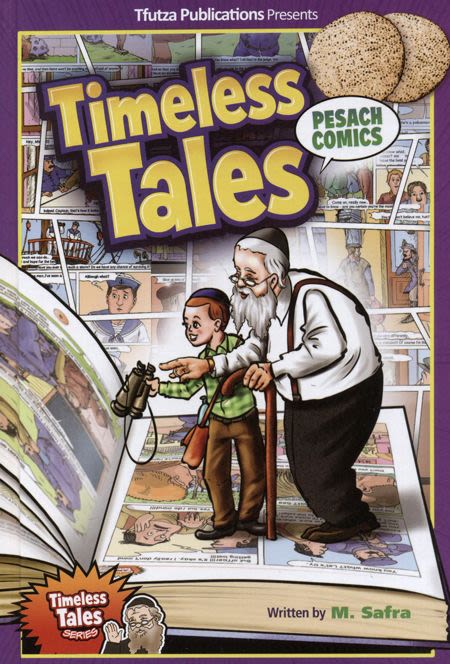
God’s Will
“I was shocked. At that moment I realized that spirituality and high thinking can be used to serve any falsehood or lowly desire, if it was without...

“I was shocked. At that moment I realized that spirituality and high thinking can be used to serve any falsehood or lowly desire, if it was without a clear Divine imperative…All the beautiful words about the universe were just a bluff…"
Several years ago, a friend’s wife gave birth to an infant who passed away when he was just a few days old. Before burying him, his parents named him: Ratzon Hashem, the will of God.
The parents’ choice of a name showed that they accepted their suffering with love. But it also showed something much deeper.
The Creator of the stars and galaxies, Who formed all of creation, Who emanates all the souls, and Who plans all the events of life — only He knows the purpose of life; whatever happens is the will of the One Above, Who is unfathomable loving kindness, Who is infinite light, and Who is above and beyond all imagination, beyond all estimation, and beyond all comprehension.
Everything that happens is Hashem’s will; Hashem’s desire.
This knowledge brings us much joy! I am not lost; I am not without a purpose. Although I can never understand Hashem, I know that He revealed his will to Moshe (Moses): “Moshe received the Torah from Sinai and gave it over to Yehoshua (Joshua). Yehoshua gave it over to the Elders; the Elders to the Prophets, and the Prophets gave it over to the Men of the Great Assembly” (Avot 1:1). The Torah was handed down, generation to generation, until it became my personal inheritance!
And if I want – really, truly want — what Hashem wants, then there will be a relationship between the Infinite and Unlimited, with and the finite and limited. An illuminating relationship is born; a secret, intimate meeting place, deep and sensitive, moving and stormy.
But what Hashem’s will? How can we know what He wants?
After all the spiritual experiences, after all the inspiration and arousal, after all the sensations and feelings; after all the beautiful, deep ideas, after all the words, the verses, the concealed implications and the stories—which are all true and correct—after all this, what do we actually do?
The Halacha – Expression of Hashem’s Will
What is Hashem’s will? In His great kindness, He constricted His Divine light into simple, exact, and holy instructions—which are written in the halachic works, and which encompass every aspect of our lives. Through keeping the halacha, I can build a receptacle for His light; I can observe His commands.
I am capable of internalizing his Divinity; of having His Divine will permeate every aspect of my life so that it will completely change me, and form me into a Divine creation. Through observing His laws, I can show that I am His servant and I am subjugated to His will.
Halacha covers everything: from how we wash our hands and use the lavatory, to what we may or may not eat, to how and what we speak, when we should rejoice and when we should be sad, and when to eat and when to refrain from eating. Without affecting such a practical level, all the beautiful ideas would remain just that, philosophical concepts with a sprinkling of tradition, a pathetic, shameful imitation of the real thing. My life would remain a vacuum.
I once heard an amusing, thought-provoking story that illustrates this point.
A young man who had started keeping Torah and mitzvot wanted to convince his sister, who had studied Buddhism in India, to learn about Judaism. The sister, however, was not interested. She relied on her guru for spiritual guidance.
The brother, however, refused to give up. When his sister came to visit him in Israel, he begged her to attend a very young, dynamic rabbi’s Torah class. She agreed, but much to the young man’s distress, the rabbi was sick and a substitute taught the laws of returning a lost object to its rightful owner instead. The class consisted of dry, technical halachic details rather than deep, meaningful revelations.
“If a man takes the lost object he found and did not return it, he nullifies a positive commandment (he lost the opportunity to fulfill one of the Torah’s commandments that we are commanded to get up and do), and he transgresses two negative commandments (he commits a transgression in which he simultaneously stumbles upon two prohibitions that the Torah commands us not to do, namely): ‘You shall not hide yourself’ and “You shall not steal.’ (Firstly, the Torah commands us not to pretend we did not see the lost object. Instead, we must take care of it and make sure it is returned to the rightful owner. Secondly, the Torah prohibits theft, and someone who finds a lost object and keeps it for himself is a thief).
“Even if the owner of the lost object was wicked, it is a mitzvah to return it to him. (One may have thought that since he is wicked, the finder does not have to return the lost object. In this case, the halacha comes to correct this mistake)” (Rambam, Hilchot Gezeilah Veaveidah, 4:12).
The young man’s sister was not impressed. She returned to India while her brother continued praying for her. But two weeks later she returned to Israel to register in a women’s yeshiva.
When her brother asked what happened, she told him the following story:
“A few days after I returned to in India, I was walking together with the guru when he found a wallet full of cash on the sidewalk. He pocketed it. I asked him what he was going to do with the money, and he told me that since he had found it, the money was now his! I asked, ‘What about the poor man who lost all that money? Shouldn’t you try to find him to give him back his wallet?’
“The guru smiled and said, ‘The universe gave it to me.’
“I was shocked. At that moment I realized that spirituality and high thinking can be used to serve any falsehood or lowly desire, if it was without a clear Divine imperative. According to Jewish law this was an act of theft, pure and simple. All the beautiful words about the universe were just a bluff. I realized the value of halacha. Although it seems dry, it is the clearly expressed will of God. Only through obedience to it can we protect ourselves from delusions such as, ‘the universe gave it to me.’"
Study Halacha!
The Hilchot of Talmud Torah, the Laws of Torah Study, direct us to learn halacha:
“It was taught in the study hall of Eliyahu (Elijah the Prophet): Anyone who learns halacha every day is assured that he has a portion in the World to Come, as it is said (Chabakuk 3:6): ‘Halichot olam lo,’ do not read ‘halichot,’ instead, say ‘Halachot’”(Niddah 73, Megillah 28).
The world (olam) exists in the merit of Torah study, especially the study of halacha.
The Rif (Rabbi Yitzchak Alfasi) explains (ad. loc.): “The entire world would have collapsed, for if there is no Torah study there is no world. Because the people of Israel were going to accept Torah study in the future, therefore: ‘olam lo’—the world exists in the merit of the one who learns halacha. And since he supports the world he is assured to have a portion in the World to Come.”
Why is Jewish law called halachot? When one learns the Halachot, which is our path in life, “He makes his life full of walks (halachot) and ways (halichot) that are a straight path to the tranquil rest of the World to Come” (HaBoneh, Ein Yaakov, ad. loc). Halachot bring the one who learns and fulfills them to the World to Come, eternal life.
Hence, the verse from Chabakuk (3:6) means: “Halichot”—one who studies the Halachot, “olam lo”—acquires the World that is entirely good.
Reb Nosson explains the relationship between halachic study and life in the World to Come: “According to the toil that he had in this world to study and review the Halachot, so will he acquire the World to Come, which is the comprehension of the inner knowledge and secrets of the Halachot. This is the aspect of Shabbat enjoyment, which is the enjoyment and pleasure of the World to Come (Likutei Halachot, Reishit HaGeiz, 3).
The Halachot are garments for Heavenly secrets and express how the Holy One runs His world. The light and inner content of those garments will be revealed in the World to Come, to someone who studies them and fulfills them in this world.
Rabbi Yisrael Meir Kagan (the Chofetz Chaim) renders a halachic ruling in the Mishnah Berurah (155:9): “The correct thing for someone learns only a little is that the main part of his study should be halacha, so that he will know how to conduct himself. In regards to the verse: ‘Hashem loves the gates of Zion more than all the dwelling places of Yaakov (Jacob),’ the Sages said: ‘Hashem loves the gates that excel in halacha (the study hall) more than all the synagogues.’ Similarly, they said: ‘Anyone who learns halacha every day is assured that a portion in the World to Come.’”
When we refer to studying Halachot we mean to learn the Codes of Jewish Law (known as the works of the poskim). This refers to how we should actually conduct ourselves, and not to all the different rabbinic points of view in the Talmud and commentaries.
This is “halacha pesukah, cut and dry halacha” as mentioned in the Tanya: “The Sages said: ‘Anyone who learns halacha every day is assured that he have a portion in the World to Come.’ This refers to Halachot that are clear and pesukah, cut, the practical halacha, as Rashi explains there” (Iggeret HaKodesh 13).
Rebbe Nachman emphasized the study of Halachot every day, although he commanded us to learn deeply in all areas of the Torah.
Reb Nosson writes of the tradition he heard from Rebbe Nachman in this matter: “He cautioned us concerning the study of the halachic authorities’ works (poskim) very much, more than any other study. It is proper to learn the four sections of the Shulchan Aruch (Code of Jewish Law) from beginning to end, in order (We have clear instruction to learn it all in an orderly way and not to jump from topic to topic)” (Sichot HaRan 29).
Rebbe Nachman wrote about the spiritual rectification that we receive when we learn halacha in an orderly and fixed way: “It [learning the halacha] is a very, very great rectification. Because of our sins, good and evil are intermingled (in the world and in the soul of the sinner). When a person learns cut halachic rulings (psak halacha), which clarifies what is proper and what is invalid, the permitted and the prohibited, the pure and the impure, the good becomes separated from the bad (in the world as well as in the sinner’s soul, for studying halacha clarifies and defines good and bad, permitted and prohibited)” (Ibid.).
“And then [when he learns the halachic authorities] all the argument in his heart will be nullified, and he will be able to serve Hashem with his whole heart, with his two desires (yetzer hara and yetzer hatov), and the gates of intellect will open for him…” (Likutey Moharan, Torah, 62, 2).
Similarly, Reb Nosson writes: “The Halachic Codes are the main rectification for the sin of Adam HaRishon (Adam, the first man). They include all the rectifications for all the sins, as I heard from Rebbe Nachman z"l” (Likutey Halachot, Pesach, 4:3).
“Through learning the Halachic Codes and Shulchan Aruch we merit to be the owner and ruler of the Land (the people of Israel merit to inherit the Land of Israel). We merit standing up the gates of the Garden of Eden and achieving Heavenly wisdom and worldly wisdom, which is the main enjoyment of the World to Come. (Meaning, we taste the taste of the Garden of Eden while living in this world). And this is a very great rectification, to separate and rectify all the blemishes that he made with his sins, for by learning the Halachic Codes, he separates good from evil, which is the principle of all the rectifications” (Kitzur Likutey Moharan, Torah 286, 1).
Every Day!
When we speak of rectifying the soul, we must remember that Rebbe Nachman promised to fulfill his promise of rectifying the soul: “He [Rebbe Nachman] explicitly said, in these words: Every conduct that I command to do is a segulah and a rectification, and helps for the past, the future, when a man passes away, for the Messianic days, for the Revival of the Dead, and for the Future to Come… And this was a general conduct that he commanded and warned everyone, that is, to learn from a halachic Code every day. Even on a day when he has no free time he should learn at least one seif (branch) of the Shulchan Aruch wherever he might be. He said this is a great obligation for every Jew” (Sichot HaRan 185).
And he wrote: “Every piece of knowledge in the Torah’s judgments, whether in the commandments between man and his fellow man, or in the commandments between man and God, is a success of the soul” (Sefer HaMidot; Limud, 10).
“And he (Rebbe Nachman) said: Every Jew is obligated to learn the Halachic Codes every day, without fail. Even if he is in a situation where he has no free time, he should at least learn a seif of the Shulchan Aruch wherever he might find, even if it is not in the place where he is holding right now in his study of Shulchan Aruch, because he must learn every day a law from the Shulchan Aruch, every day of his life. When he completes the four sections of the Shulchan Aruch he should began learning it again from the beginning, and so he should conduct himself all the days of his life” (Sichot HaRan 29).
On his death bed, Reb Nosson spoke about the importance of learning halacha every day, and commanded Rebbe Nachman’s followers:
1) To travel to Uman, to Rebbe Nachman’s gravesite, for Rosh Hashanah.
2) To learn the Shulchan Aruch every day.
3) To do seclude ourselves every day and initiate a private conversation with our Creator (Netiv Tzadik, Biur HaLikutim on Torah 61).
Someone who does not yet know how to learn the Shulchan Aruch should learn thoroughly through the Kitzur Shulchan Aruch (Abridged Code of Jewish Law) or another basic work of halacha. There are also projects that offer audio recordings of halachic classes and possibilities of learning over the telephone, etc. You can find the details at any Jewish content website.
Wishing you much success!
(From: http://www.levhadvarim.com/ )











Tell us what you think!
Thank you for your comment!
It will be published after approval by the Editor.